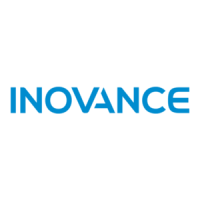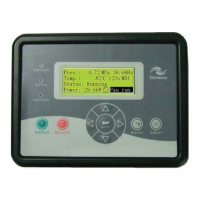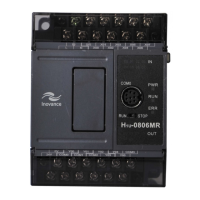385
6
6 Positioning and Interpolation PLSV: Variable-speed pulse output
PLSV: Variable-speed pulse output
◆
Overview
Pulses are output through the specied output port at the specied frequency and direction. Acceleration/
deceleration is not supported. If the ow is inactive, the pulse output stops immediately.
PLSV
S1 D1 D2
Variable Pulse
Output
Applicable model:
H3U
S1 Output
frequency
Specied pulse output frequency
16-bit instruction
(7 steps)
PLSV:
Continuous
execution
32-bit instruction
(13 steps)
DPLSV:
Continuous
execution
D1 Output
port
High-speed pulse output port
D2 Output
direction
Pulse running direction port or bit variable
◆
Operands
Operand
Bit Element Word Element
System·User System·User Bit Designation Indexed Address Constant
Real
Number
S1 X Y M T C S SM D R T C SD KnX KnY KnM KnS KnSM V Z Modication K H E
D1 X Y M T C S SM D R T C SD KnX KnY KnM KnS KnSM V Z Modication K H E
D2 X Y M T C S SM D R T C SD KnX KnY KnM KnS KnSM V Z Modication K H E
◆
Functions and actions
This instruction is used to output pulses at the specied frequency and running direction through the
specied port. Acceleration/deceleration is not supported. When the drive ow is inactive, the pulse output
stops immediately. This instruction is applicable only to the PLC of the transistor output type.
S indicates the specied pulse output frequency. For a 16-bit instruction, the range is 1 to 32,767 Hz and -1
to -32,768 Hz. For a 32-bit instruction, the range is 1 to 200,000 Hz and -1 to -200,000 Hz. The "-" indicates
an instruction signal running in the reverse direction.
D1 indicates the pulse output port which can be Y0, Y1, Y2, Y3, or Y4.
D2 indicates the running direction of the output port or the bit variable. If output is ON, it means running in
the forward direction; otherwise, it means running in the reverse direction.
When the instruction ow is OFF, the output stops immediately. When the ow switches from OFF to ON,
the pulse output resumes.
The following gure shows a pulse output diagram.

